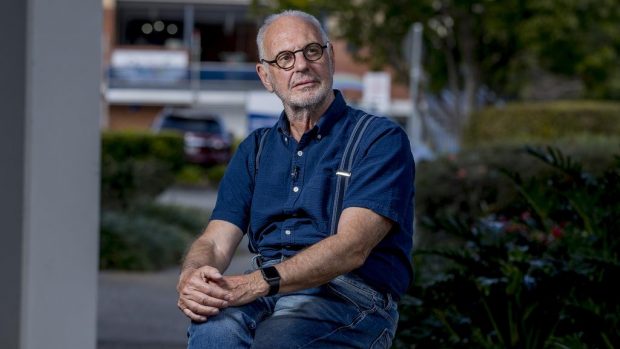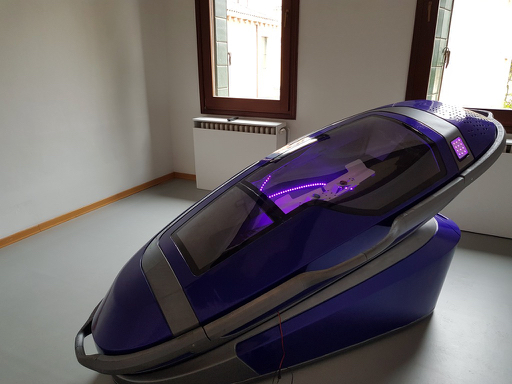December 20, 2021
A body implant that would kill you
Creator of ‘suicide pod’ wants to make body implant that would kill you if you forget to deactivate it
by Io Dodds for The Independent
The Australian euthanasia activist behind a widely-discussed “suicide pod” wants to create an implantable medical device for people with dementia or Alzheimer’s disease that would kill its users if they did not regularly deactivate it.
Dr Philip Nitschke, a former physician and “right to die” campaigner who administered the first voluntary lethal injection in 1996, provoked controversy this month by announcing that he planned to start helping people die by suicide in Switzerland next year using a 3D-printable death chamber called the Sarco.
The device, which Dr Nitschke says can only be activated from the inside, is designed to painlessly flood the occupant’s body with nitrogen and intended to keep medical involvement to a minimum while still complying with Switzerland’s assisted dying law.
Yet in an interview with The Independent on Wednesday, Dr Nitschke said his non-profit group Exit International is already brainstorming something more radical: an implantable device that would allow people with degenerative brain disorders to seal their own deaths years in advance.

The idea is effectively the opposite of a dead man’s switch, a type of safety device used in risky industries such as aircraft and rail transport to disengage dangerous mechanisms if the user dies or becomes unconscious.
Dr Nitschke said: “When a person has dementia, they can nowadays quite legally in some places fill out a bit of paper 10 years ago, when they are of sound mind, saying ‘if I get like this, kill me’.
“Now, 10 years later, a doctor can come along, read the bit of paper, and even though you don’t know which way is up or down, legally give you an injection and end your life. That makes a lot of people feel pretty uncomfortable, and certainly makes me feel uncomfortable.
“So what we’re working on here is some sort of an implant which you have to switch off every day. When you’ve forgotten why you’re switching something off that’s beeping, then you will die.
“That puts the responsibility right back onto the person and allows them to get what they want, which is that they do not want to live on as some form of vegetable, with no one prepared to end their lives.”

The Sarco suicide pod can create an oxygen-free environment in less than one minute (Exit International).
Dr Nitschke, sometimes known as “Dr Death”, has long been a controversial figure in the assisted dying debate, distributing suicide advice to over-50s with his Peaceful Pill Handbook and burning his doctor’s certificate in protest over restrictions imposed on him by Australian medical authorities.
Now living in the Netherlands, he acknowledged that any implantable device would face “significant legal barriers”. He said: “I don’t think there’s anyone you’re likely to get much sanction from anyone if you say, ‘I’m going to go around implanting poison into someone’.
“But the biggest ones right now are the technical barriers – we don’t know how to do it. What is the poison? What is the thing that’s going to stop you living that can be so implantable? How are you going to have it released?”
Asked how such a device could guard against mere forgetfulness, he suggested it might beep for “a day or two” before activating to make sure the user’s disease had really progressed far enough.
Such a device would open up profound questions for doctors and regulators, and likely attract intense scrutiny from those who fear it could be abused or implanted in someone against their will.
However, Dr Nitschke sees it as “an important development” that would protect doctors from the ethical quandary of cases where someone with dementia or Alzheimer’s has earlier signed papers requesting their death.
In one hugely controversial case in the Netherlands, prosecutors charged a nursing home doctor who had ended the life of a 74-year-old woman with dementia in accordance with her earlier will, even though she could no longer confirm it. The Dutch Supreme Court of the Netherlands finally ruled in his favour last year.
Voluntary euthanasia means a doctor actively killing someone at their request, whereas assisted suicide or assisted dying refers to a person killing themselves with the help of a third party.
Swiss law allows only the latter, while Dutch law allows both.